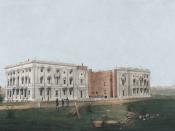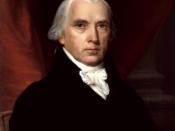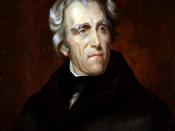1.How did Tecumseh and Tenskwatawa resist American expansion?"The Prophet" --> Tenskwatawa-tries to establish a Pan-Indian Confederacy-establish a common ethnic identityBattle of Tippecanoesome people considered the war of 1812 a second American Revolution-maintain independence and finally get the English to acknowledge that the United States is truly a significant sovereign nation-relations with Britain begin to significantly improve-the war promoted a sense of nationalism which the American Revolution never did-was very little sense of profound national identity-local town and state and not necessarily nation at large-changed as a result of the War of 1812-battle of New Orleans major factor --> lopsided victory-war also promotes new heroes - Andrew Jackson-transitional moment in time where Madison is president and will be succeeded in 181 by James Monroe-most of the others that make major contributions not from that generation-politicians: Webster, Calhoun, Clay-domestic industry is established --> United States becomes more self-sufficient than it had been prior to the War of 18121816 â at the conclusion of the War-there was a need for Madison to promote the national bank and Gallatin moves to create another national bank-second bank of the United States - chartered for a 20 year period (1816-1836)-political party system --> Hartford Convention-result is that it helps to destroy the Federalist Party - cannot be labeled Federalist and hope to win office-after 1816 -->Federalists Party ceases to exist-Henry Clay brings up the term National-Republicans-move into an Era of Good Feelings (1816-1824)-the acceptance of an idea that political parties were not good â that now we're not having obvious factions-people also realized that they should stop obsessing with foreign policy problems and should focus on domestic issues instead2.
Why did Jefferson's foreign policy prove to be a failure?-embargo failed --> US more dependent on British products than they are of American products3.



STUDY NOTES - SORRY
These are study notes, sorry I meant to put that in the category section.
0 out of 0 people found this comment useful.